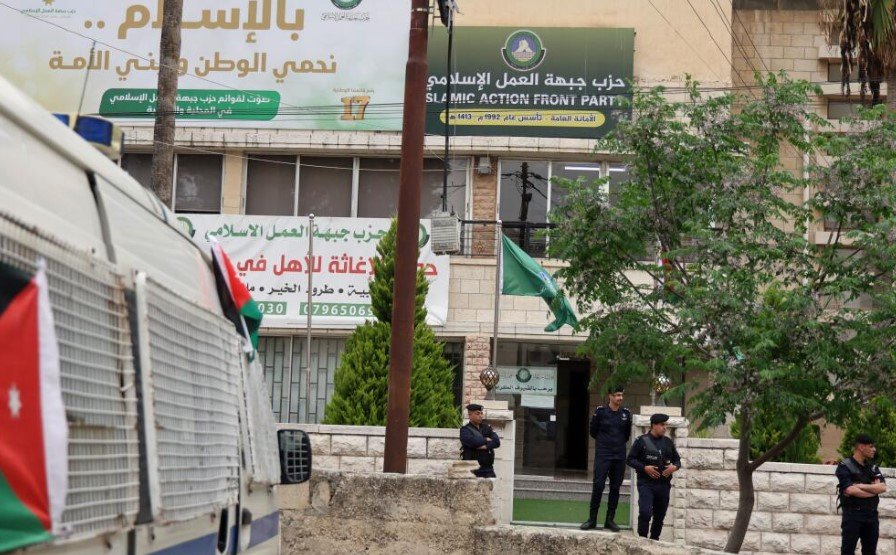Jordanian authorities are doubling down on their campaign against the Muslim Brotherhood—this time with a sharper focus on economic dismantlement. What began with freezing assets has now morphed into a broader offensive against businesses and charities allegedly tied to the banned group.
The latest twist? A private company now under prosecution for acting, according to officials, as a disguised financial arm for the Brotherhood.
From Assets to Alleged Fronts: The Crackdown Expands
The shift is striking. Where once the government went after bank accounts and properties, it’s now digging into commercial registries, licensing data, and NGO records.
The Companies Controller, a body usually known for clerical compliance checks, has taken center stage in this legal push. On July 8, officials referred a company to the Public Prosecution for violating corporate laws—though the real reason, sources say, is its suspected link to the Brotherhood’s economic web.
One source close to the matter described the operation bluntly: “It’s not just freezing cash anymore. It’s tearing out the roots.”
Jordan officially outlawed the Brotherhood in 2020, following a series of legal and political escalations. But remnants of the organization, particularly in the form of long-standing charities and low-profile firms, are proving harder to eliminate.

Social Development Ministry Plays Quiet But Pivotal Role
While financial regulators target the corporate side, the Ministry of Social Development has quietly been taking down organizations from another angle.
Several NGOs and charities—some of which have operated in Jordan for decades—have either been dissolved or are currently under legal review. Officials argue these entities serve as soft fronts, channeling funds and legitimacy to a group no longer legally recognized.
One insider familiar with the charity audits said this is about “legal sterilization”—making sure any Brotherhood-connected structures are not just frozen but decommissioned entirely.
That includes:
-
Auditing funding sources and expenditures of key NGOs
-
Reviewing board memberships for hidden Brotherhood affiliations
-
Dissolving foundations that fail to meet new transparency benchmarks
It’s a sweeping effort, and it’s happening with little public drama.
Brotherhood Legacy Still Woven Into Jordan’s Institutions
Even after being outlawed, the Muslim Brotherhood’s economic footprint remains stubbornly present in Jordan. The group didn’t just rely on overtly political channels; it cultivated influence through education, banking, healthcare, and welfare networks.
Some of these businesses, by design or neglect, still operate.
In fact, here’s how the Brotherhood’s financial arms historically embedded into Jordan’s ecosystem:
| Sector | Type of Entity | Brotherhood Link |
|---|---|---|
| Education | Private schools, tutoring centers | Alumni networks, curriculum shaping |
| Finance | Islamic loan cooperatives | Informal religious networks |
| Social Work | NGOs, charity kitchens | Mobilization during elections |
| Commerce | Wholesale and import firms | Business leadership ties |
That legacy is proving hard to erase. And the government knows it.
Legal Risks Are Growing—and So Are the Political Stakes
Going after alleged Brotherhood front companies sounds surgical on paper. In reality, it’s legally messy and politically risky.
For one, not every business with a religious or charitable background is necessarily Brotherhood-aligned. Critics warn of guilt-by-association tactics that could sweep up innocent actors or chill legitimate Islamic civic life.
Also, there’s the blowback risk.
Jordan’s courts are being asked to weigh in on asset seizures and company closures, often without smoking-gun evidence. Some defense lawyers argue that due process is being sidestepped in favor of “national security expediency.”
A senior legal analyst in Amman put it this way: “This campaign walks a fine line between legal enforcement and political messaging. One misstep, and the whole thing risks looking like selective justice.”
Still, the state appears undeterred.
Why Now? Timing and Messaging May Be Key
So why intensify the crackdown now? And why go after the economic networks so publicly?
Part of the answer may lie in the regional climate. With Egypt continuing its decades-long suppression of the Brotherhood and Gulf allies firmly opposed to Islamist political movements, Jordan is aligning itself with that broader axis.
There’s also a domestic angle. Rising public discontent over economic stagnation has fueled populist frustration. Officials might be betting that targeting the Brotherhood’s residual networks will win support—or at least distract from other issues.
And the optics matter.
After years of seemingly tolerating low-profile Brotherhood-linked activity, the state is now saying: enough.
One well-placed observer described it as “legal closure after political divorce.”
